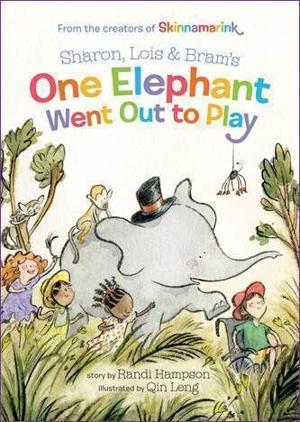When do babies say their first word?
10 min read
Babies make lots of communicative noises, but coos, gurgles, and cries aren’t true speech. When do babies say their first words? Most babies can say at least one or two words by the end of their first year, but the timing may vary considerably from individual to individual.

For instance, experiments indicate that babies understand certain words — like the names of everyday objects — as early as 6 months. And between 5 and 10 months, most babies have begun babbling in ways that are very speech-like.
Could some of these infants be using speech sounds to communicate — putting together simple syllables (like “ba ba”) to express a concrete meaning (like “bottle”)? Maybe. According to survey of more than 1500 families in the United States, more than 50% of parents believe their babies are speaking their first words by 10 months postpartum (Schneider et al 2015).
On the flip side, that same survey found that about 25% of babies still hadn’t spoken by their first birthdays. Are these babies at risk for problems? Not necessarily. But if your baby is on the slow side, it’s a good idea to make sure you baby is getting plenty of opportunities to practice language, and to talk with your pediatrician.
Here are the details about when babies start talking — and what to look for if you’re concerned about developmental delays.
The emergence of “canonical babbling” — when babies practice speaking syllables like “ma ma ma“
From birth, babies make a variety of vocal sounds. But it isn’t until months later that babies begin repeating sounds that we recognize as true speech syllables — syllables that include both a consonant and a vowel, like “ma ma ma” or “ba ba ba” (Oller et al 2001; Oller et al 1998).
When babies blend the consonants and vowels together quickly, the way adult speakers do, it’s called this “canonical babbling” (Oller et al 1999). The age of onset varies from individual to individual, and different studies have reported somewhat different trends (Molemans et al 2012). In some studies, a few babies started canonical babbling before 5 months, and more than half had begun shortly after 7 months (van der Stelt and Koopmans-can Beinum 1986; Fagan 2009). In another study, canonical babbling wasn’t initiated by most infants until after 8 months (Nathani et al 2006).
Overall, researchers expect most normally-developing babies to begin canonical babbling sometime between 5-6 months and 10 months (Lang et al 2019; Morgan and Wren 2019). But regardless of when it starts, canonical babbling is a crucial step forward: Babies are practicing the pronunciation of syllables that will become the building blocks of true words.
Where do we draw the line between babbling and a baby’s first words? It’s tricky. When children are learning to talk, their pronunciation is far from perfect. They do their best to approximate the sounds they hear, and the results might sound like babbling, even though they intend their sounds to function as real words. For example, what if your baby consistently says “ba ba” when she’s given a bottle? Maybe she is deliberately and intentionally trying to say “bottle.” If so, that’s a word — albeit an imperfectly pronounced one.
So the question, “when do babies say their first words?” depends not only on the sounds they make, but on whether or not babies have figured out what the sounds are supposed to mean. How early do babies crack the code?
Evidence that even 6-month-old infants can understand certain words
Researchers have designed a clever way to test word comprehension in babies.
First, babies sit on their mothers’ laps while facing an electronic screen. Then a series of images are presented to the babies — images of everyday items. The mothers are blindfolded, so they can’t know what, exactly, their babies can see. But the mothers wear earphones so they can receive instructions from experimenters about what to tell their babies.
With each trial, multiple items appear simultaneously at different locations on the screen. And the mothers are told to say something — to repeat back a phrase or question that singles out one object by name.
For instance, if the screen displays two items — a mouth on the left and an apple on the right — the mother might be told to say, “Do you see the mouth?”

How do babies react?
Researchers testing English-speaking families have consistently found that babies as young as 6 months tend to look more at the items their mothers speak about. They appear to understand many words, including the names of their parents (e.g., “Mama” and “Daddy”), as well words that refer body parts and food (Tinkoff and Jusczyk 1999; Tinkoff and Jusczyk 2012; Bergelson and Swingley 2012; Bergelson and Swingley 2015; Bergelson and Aslin 2017; Bergelson and Swingley 2018).
Results may vary by context. When babies listen to other, unfamiliar voices, they don’t always show the same evidence of word comprehension (Steil et al 2021). It’s also possible that some languages are harder than others for babies decipher. In one experiment, babies learning Norwegian didn’t show preferential looking until they were 8-9 months old, possibly because Norwegian is a more phonologically complex language than English (Kartushina and Mayor 2019).
Moreover, as you might expect, it depends a lot on which words you test. Babies are more likely to have learned the meaning of words that their parents have used in conversation with them every day. And some situations may be especially conducive to learning.
For instance, during meal times, caregivers typically interact with their babies face to face, and they may repeat certain key words (like the names of utensils and food items) at just the right moment — when babies are looking at the objects being named (Clerkin and Smith 2019). This makes it easier for babies to figure out what parents are trying to communicate.
So if your baby seems to understand what the word “bottle” means, and says something like “ba ba” to request his bottle, it’s not unreasonable to think he’s making use of a word. Reports of early word use aren’t common, but they exist. For instance, in a study tracking 46 babies over time, 6 individuals were reported by their English-speaking parents to be producing a word by the age of 7 months (Moore et al 2019).
And even if your baby doesn’t turn out to be an early talker? It’s worthwhile to be open to the idea that you’re baby is ready to produce language. That’s because language skills grow when adults engage babies in conversation. (Frank et al 2021; Ferjan Ramírez et al 2020; Ferjan Ramírez et al 2019; Newman et al 2016; Shneidman and Goldin-Meadow 2012). If we take the stance that our babies might be capable of using words earlier in life, it will encourage us to provide our babies with the rich, interactive language they need to develop larger vocabularies.
But what if your baby isn’t speaking yet? When should you worry?
Researchers emphasize that it’s normal for babies to vary quite a bit in the timing of their speech milestones. As noted above, a recent survey suggests that approximately 25% of babies haven’t spoken their first words by the age of 12 months. But there are guidelines for identifying children that seem to be developing more slowly than normal.
Late onset of canonical babbling
In typically-developing children, canonical babbling emerges by 10 months. Babies who don’t show signs of canonical babbling by the end of this period may be at risk for future language problems (Lang et al 2019; Lomander et al 2017). So if you aren’t hearing those syllables by 9 months, this is something you’ll want to monitor. Talk to your pediatrician about your concerns, and take advantage of opportunities to help your baby learn. This includes engaging in your baby in conversation (as mentioned above). It also includes encouraging your baby’s efforts to babble by imitating the speech-like sounds your baby makes (Goldstein and Schwade 2008).
No words by 13 months
Throughout the world, infants are typically speaking their first words by 11-13 months, and research suggests that most babies show major improvements in their ability to understand speech by 14 months (Bergelson and Swingley 2012). So if your baby is approaching 14 months and still hasn’t spoken any words, it’s a good idea to consult with your pediatrician for advice.
Timely intervention can get children back on track
When babies lag behind, that doesn’t always mean that something is wrong. But if there is an underlying problem, it’s best to identify it early in development. Modern speech therapists have developed effective interventions for children with speech delays, and the earlier children begin, the sooner children will catch up.
More reading
Babies need our help learning language. Like adults who learn to speak a foreign language, babies benefit from being included in conversation. For more information about the power of one-on-one communication in teaching babies to understand and speak words, see this opens in a new windowarticle.
References: When do babies say their first words?
Bergelson E and Swingley D. 2018. Young Infants’ Word Comprehension Given An Unfamiliar Talker or Altered Pronunciations. Child Dev. 89(5):1567-1576.
Bergelson E and Swingley D. 2015. Early Word Comprehension in Infants: Replication and Extension. Lang Learn Dev. 11(4):369-380.
Bergelson E and Swingley D. 2012. At 6-9 months, human infants know the meanings of many common nouns. Proc Natl Acad Sci U S A. 109(9):3253-8
Bergelson E and Aslin RN. 2017. Nature and origins of the lexicon in 6-mo-olds. Proc Natl Acad Sci U S A. 114(49):12916-12921.
Clerkin EM and Smith LB. 2019. The everyday statistics of objects and their names: How word learning gets its start. Cogsci. 2019:240-246.
Fagan MK. 2009. Mean Length of Utterance before words and grammar: longitudinal trends and developmental implications of infant vocalizations. J Child Lang. 36(3):495-527.
Ferjan Ramírez N, Lytle SR, Kuhl PK. 2020. Parent coaching increases conversational turns and advances infant language development. Proc Natl Acad Sci U S A. 117(7):3484-3491.
Ferjan Ramírez N, Lytle SR, Fish M, Kuhl PK. 2019. Parent coaching at 6 and 10 months improves language outcomes at 14 months: A randomized controlled trial. Dev Sci. 22(3):e12762.
Frank M C, Braginsky M, Yurovsky D, and Marchman VA. 2021. Variability and Consistency in Early Language Learning: The Wordbank Project. Cambridge, MA: MIT Press.
Garcia D, Rodriquez GM, Hill RM, Lorenzo NE, Bagner DM. 2019. Infant Language Production and Parenting Skills: A Randomized Controlled Trial. Behav Ther. 50(3):544-557.
Goldstein MH and Schwade JA. 2008. Social feedback to infants’ babbling facilitates rapid phonological learning. Psychol Sci. 19(5):515-23.
Kartushina N and Mayor J. 2019. Word knowledge in six-to nine-month-old Norwegian infants? Not without additional frequency cues. R. Soc. Open Sci. 6:180711.
Lang S, Bartl-Pokorny KD, Pokorny FB, Garrido D, Mani N, Fox-Boyer AV, Zhang D, Marschik PB. 2019. Canonical Babbling: A Marker for Earlier Identification of Late Detected Developmental Disorders? Curr Dev Disord Rep. 6(3):111-118.
Lohmander A, Holm K, Eriksson S, and Lieberman M. 2017. Observation method identifies that a lack of canonical babbling can indicate future speech and language problems. Acta Paediatr. 106(6):935-943.
Molemans I, van den Berg R, van Severen L, Gillis S. 2012. How to measure the onset of babbling reliably? J Child Lang. 2012 Jun;39(3):523-52.
Moore C, Dailey S, Garrison H, Amatuni A, and Bergelson E. 2019. Point, walk, talk: Links between three early milestones, from observation and parental report. Dev Psychol. 55(8):1579-1593.
Morgan L and Wren Y. 2018. A Systematic Review of the Literature on Early Vocalizations and Babbling Patterns in Young Children. Communication Disorders Quarterly 4(1).
Nathani S, Ertmer DJ, Stark RE. 2006. Assessing vocal development in infants and toddlers. Clin Linguist Phon. 20(5):351-69.
Newman RS, Rowe ML, and Bernstein Ratner N. 2016. Input and uptake at 7 months predicts toddler vocabulary: the role of child-directed speech and infant processing skills in language development. J Child Lang.;43(5):1158-73
Oller DK, Eilers RE, and Basinger D. 2001. Intuitive identification of infant vocal sounds by parents. Developmental Science. 4:49–60.
Oller DK, Eilers RE, Neal AR, Schwartz HK. 1999. Precursors to speech in infancy: the prediction of speech and language disorders. J Commun Disord. 32(4):223-45.
Oller DK, Eilers RE, Neal AR, and Cobo-Lewis AB. 1998. Late onset canonical babbling: a possible early marker of abnormal development. Am J Ment Retard. 103(3):249-63.
Schick J, Fryns C, Wegdell F, Laporte M, Zuberbühler K, van Schaik CP, Townsend SW, and Stoll S. 2022. The function and evolution of child-directed communication. PLoS Biol.;20(5):e3001630.
Shneidman LA and Goldin-Meadow S. 2012. Language input and acquisition in a Mayan village: how important is directed speech? 15(5):659-73.
Syrnyk C and Meints K. 2017. Bye-bye mummy – Word comprehension in 9-month-old infants. Br J Dev Psychol. 35(2):202-217.
Tincoff R and Jusczyk PW. 2012. Six-Month-Olds Comprehend Words That Refer to Parts of the Body. Infancy. 17(4):432–444.
Tincoff R and Jusczyk PW. 1999. Some Beginnings of Word Comprehension in 6-Month-Olds. Psychological Science. 10(2):172–175.
Schneider RM, Yurovsky D,and Frank MC. 2015. Large-scale investigations of variability in children’s first words. In D.C. Noelle, DC, R. Dale, A. S. Warlaumont, T. Matlock, C. D. Jennigs, and P. P. Maglio (eds): Proceedings of the 37th Annual Conference of the Cognitive Science Society, 2210–2115.
Steil JN, Friedrich CK, and Schild U. 2021. No Evidence of Robust Noun-Referent Associations in German-Learning 6- to 14-Month-Olds. Front Psychol. 12:718742.
Syrnyk C and Meints K. 2017. Bye-bye mummy – Word comprehension in 9-month-old infants. Br J Dev Psychol. 35(2):202-217.
van der Stelt J. and Koopmans-van Beinum F. 1986. The onset of babbling related to grossmotor development. In B. Lindblom & R. Zetterstro¨m (eds), Precursors of early speech ,163–73. New York: Stockton Press.
Content of “When do babies say their first words” last modified 5/31/2022. Portions of text are derived from an earlier version of this article by the same author.
image of siblings by istock / Golfcuk
Image of mouth and apple by Parenting Science, and patterned after experimental slides used in Bergelson and Swingely 2012.





